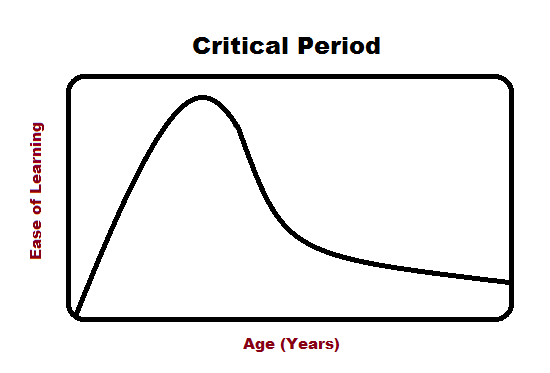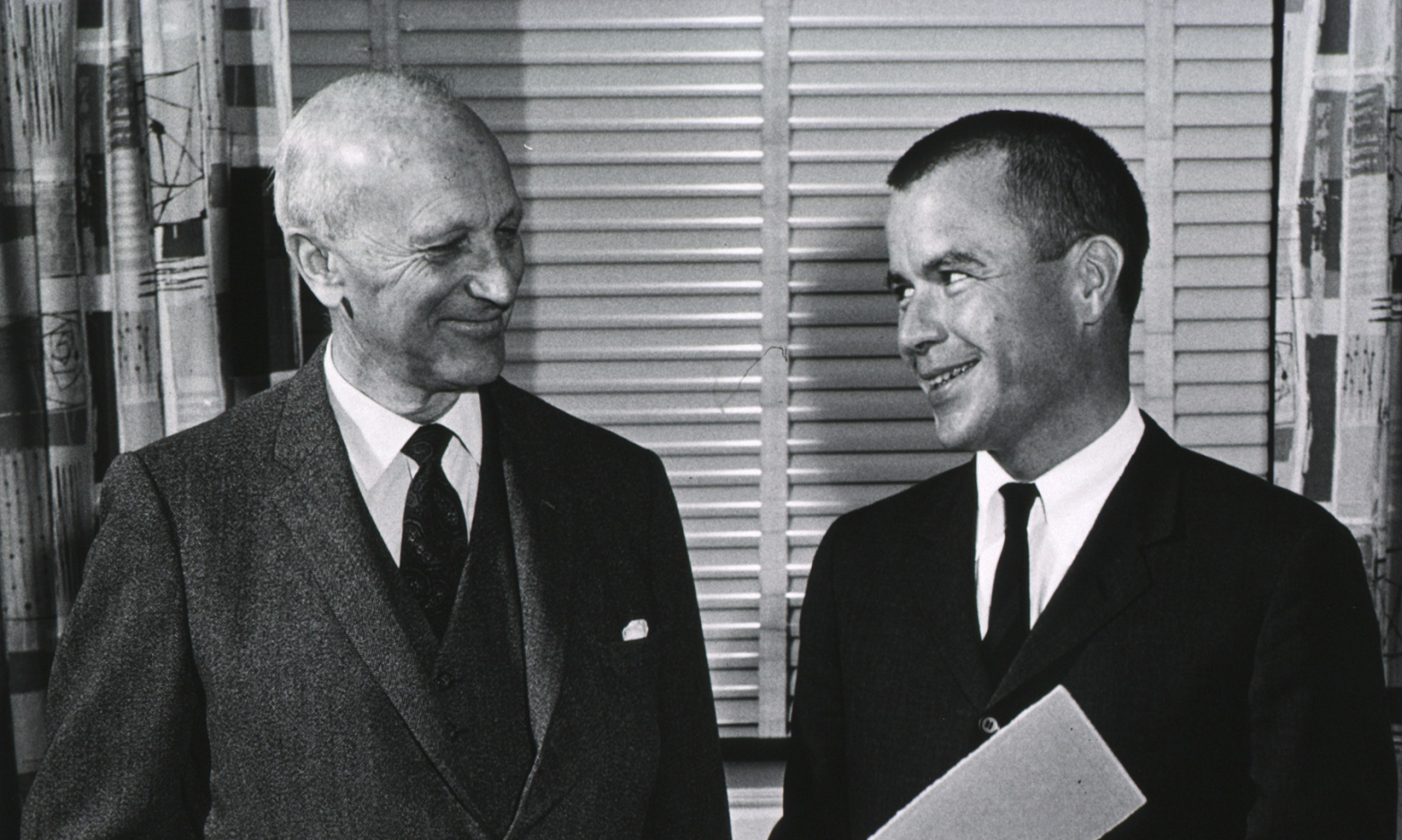Penfield and Roberts introduced the concept of critical period hypothesis (CPH) in 1959. The theory states that the first years of life constitute the time during which language develops readily and after which language acquisition is much more difficult and ultimately less successful.
The exact age is a subject of discussion, but it is estimated to be between age 5 and puberty.

The idea is derived from biology, as similar phenomena are known e.g. for birds or cats. If not learned before a certain age, birds never learn singing and kittens do not develop sensitivity to light.
There are known cases of children that have never developed language:
- Victor of Aveyron is a boy who was raised by wolves (yes, it’s a true story). He was found by humans when he was nine years old. However, attempts to socialize him failed. The boy never learned human language.
- Genie Wiley suffered tremendous abuse from her father for most of her childhood, who chained her to the toilet and kept her locked in a room with no contact with the outside world. The girl was forbidden to speak. When she was found, it was discovered that she could learn new words. Although her vocabulary developed quite quickly, she had great difficulty putting words together and did not seem to understand grammar.
CPH does not mean that you cannot learn a language at an older age. There is an abundance of evidence of older people learning new languages after the age of 50. CPH says that it will become more difficult with age.








